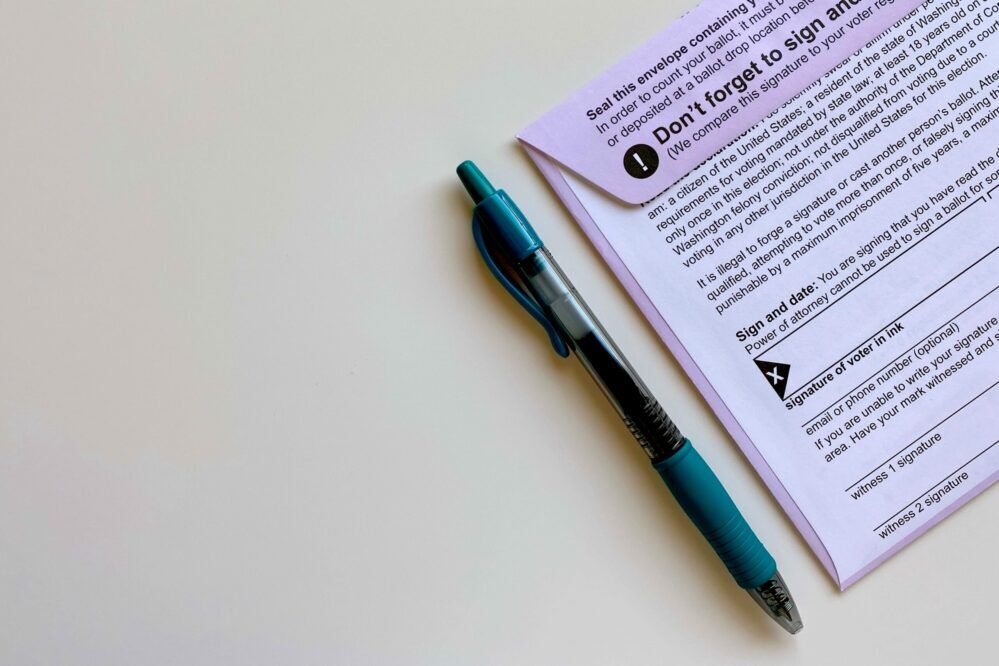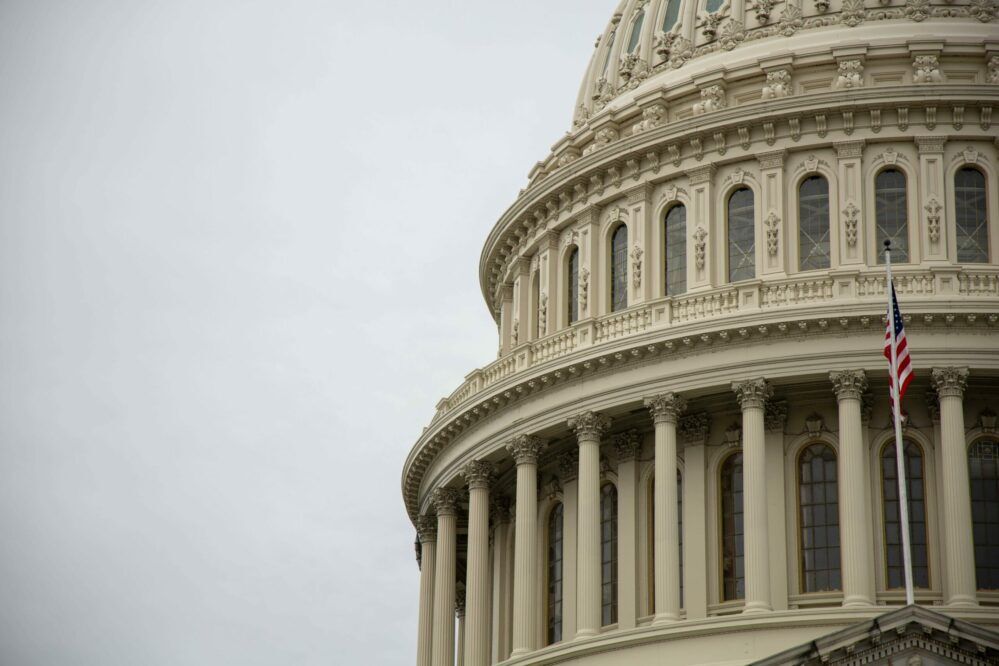Political campaigns can help you polish several essential skills while offering unparalleled insight into the election process. Working on a political campaign can challenge you to improve your overall understanding of current events and use your creativity and communication skills.
Though the work can be exciting and rewarding, political campaigns can also be hectic and stressful. If you like structure and benefit from thorough training, the pace of political campaigns may not be ideal.
However, political campaigns can be a crucial step to gaining valuable experience for those willing to put in the effort.
What Is a Political Campaign?
A political campaign is an organized series of actions that aims to sway public opinion within a particular group. These actions are carried out during a specified period before an election process takes place.
What campaigns can you work on?
While most people think of presidential elections first, political campaigns can take many shapes and forms. There are hundreds of elected officials to campaign for. In addition, you could campaign for specific pieces of legislation or controversial issues you think need more attention.
Campaigns vary on the type of candidate or position you’re campaigning to fill. These can range from treasurers or mayors to the U.S. House of Representatives. There are also several public school positions to campaign for, including board members.
If you choose to campaign for an issue rather than a candidate, you will also have many options to explore. Political issues that require activism and campaigns can be anything from environmental awareness to the national debt.
Deciding which campaign is right for you
Choosing the perfect campaign for you requires having a clear idea of your future goals. Are you hoping for a job in politics down the line? Are you passionate about a particular cause? What changes do you hope to see?
Aside from setting goals for yourself, it’s crucial to understand your limitations. If you have any time constraints or lack of flexibility, it will play a role in narrowing down campaign options. Likewise, if a campaign requires travel, geographic changes are something you need to consider.
Furthermore, you should determine how involved you want to be in the campaign. Different political campaign staff positions have varying levels of responsibility. Evaluate how much you want to do and whether you desire a leadership role.
Keep in mind that you may also face competition for the position you seek. A critical component of campaigns is competing. Thus, your desired role should be one you are willing to fight for. On the other hand, if you choose a small campaign to work on, it may be much less competitive.
Lastly, you should consider whether you need immediate funding. Not all positions are paid, though larger political campaigns may offer more.
Choosing a candidate to work for
You should follow your instinct and passion when choosing a candidate. Who you think has a better chance of winning than pursuing your top interests is less important. If you find a candidate with whom you share the same views, that is a fantastic starting point.
Another consideration is your location. You may have a better chance of obtaining work for a local candidate, though this isn’t always the case. Many people find it easier to start local and campaign for candidates in their hometown or home state.
Choosing a candidate or position based on how it may impact your goals is essential. Sometimes, a larger position for an underdog candidate can offer more benefits than a smaller one for the most popular candidate. You should also consider that it’s common to work for your candidate’s competition at a later point.
The Hiring Process
The hiring process for political campaign staff involves plenty of networking. Though it’s possible to secure political campaign staff jobs through traditional routes like employment sites, getting started in politics is often about who you know.
Networking doesn’t have to be intimidating. If you’re already passionate about political causes, you have already attended political events. Don’t miss a chance to introduce yourself at campaign events or fundraisers. Attend meet-and-greets with candidates and introduce yourself to different campaign opportunities.
Activist connections can prove to be invaluable. Another common avenue is to know someone already involved. Perhaps your friend has worked on a campaign in the past or knows someone who has. Additionally, seeking donor groups for campaigns or candidates is a good start.
After you form connections, use your skills and background to your advantage. Remember that you don’t necessarily have to end up in a position that utilizes your degree. For instance, if you’re an attorney, you may choose to work in positions that don’t directly involve policy-making.
When you’re ready to apply for a position, the first search on the campaign website for a way to submit it. Otherwise, you can send your application directly to the campaign manager or the candidate. If you know someone involved with the campaign, you can also ask them to forward your application.
Remuneration during campaign work
Political campaign staff salaries vary by position. Remuneration during the campaign can range from $45,654 for a campaign management position to $33,000 for community organizers. Your salary will depend on your campaign experience and background. You may have to start working for free as a volunteer more often than not.
Especially for entry-level positions, you should expect to do volunteer work in exchange for forming connections and gaining experience.
Getting involved as a student
Don’t underestimate your school connections. Whether you attended law school or college, looking to your fellow alumni can benefit you. Find alumni who have served on campaigns or who can get you involved in partisan groups such as the National Republican Senatorial Committee.
Common Functions Of a Political Campaign
There are several important functions in political campaigns. These are some of the most common to familiarize yourself with.
✅ Request information on BAU's programs TODAY!
Ballot access
Ballot access refers to the regulations surrounding how a candidate or measure will appear on a voting ballot. These rules change depending on the state, so it’s vital to understand the state laws dictating ballot access in your chosen state. Getting your candidate or issue to appear on the ballot involves plenty of outreach.
PR and communications
PR and communications are the backbones of any campaign. PR and communications involve having excellent writing skills and possessing the ability to speak in public and be convincing. Leading both public and political outreach to inform people about your campaign is essential.
Election administration
The election administration clarifies the issues and makes several voting resources available to the public. This entails informing voters and providing them with the tools and education they need to make the right choices.
Fundraising
Setting a fundraising goal is vital. Making a compelling argument to win voters is a critical component of fundraising. Understanding how much you may need to raise for a campaign is the first step, although you will need a solid timeline and evaluate marketing channels.
Political
If you have extensive campaign expertise, you may consider a position as a consultant. Political consultants are experts in specific areas and play advisory roles for candidates.
Scheduling and targeting
Prioritizing events is important for any campaign. A schedule must be well-organized given the limited timeframe. In addition, knowing how to analyze and interpret the research from focus groups and campaign surveys is indispensable.
How Will Your Professional Career Be Affected?
Political campaigns can be very fulfilling but can also be very time-consuming. The following are some pros and cons.
Pros
- New opportunities for future connections
- Engaging with the public and researching their needs
- Feeling like you’re making a change in your community
- Gaining skills to enhance your resume
- An ample opportunity to advance to higher levels
Cons
- You may not see immediate financial rewards for your work
- Having a political track record is risky if you don’t end up working in politics
- A high-stress position may put a pause on your current career goals
Final Thoughts
Political campaigns are not suitable for everyone. However, they provide you with fulfilling experiences and a chance to gain unique knowledge you won’t get anywhere else. They can also change your outlook on societal issues and provide you with a deep sense of accomplishment.
Understanding your long-term career goals and following your passions will enable you to make a sound decision. With patience, diligence, and perseverance, a political campaign may be the boost you need to kickstart your dream career.














